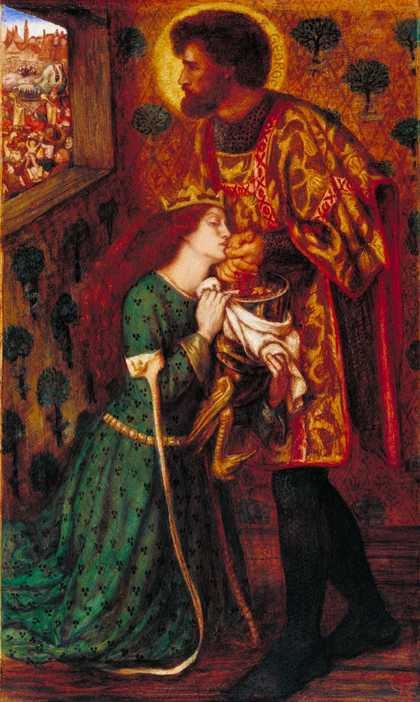Inspired by Chiedza Mhondoro’s contribution to the Rossettis exhibition catalogue Sensitivity and Possibility: Reading Dante Gabriel Rossetti’s The Beloved Through Fiction. This event will showcase and bring together authors who also blur the lines between fiction and history with writing that expands upon existing narratives within art and society.
In Victorian England, the period that gave rise to the Rossettis, mainstream culture and society rarely engaged with minority and marginalised groups and had a tendency to stereotype and exoticise them. In The Rossettis exhibition are a series of portrait studies by Dante Gabriel Rossetti of working class people who he employed to sit for his painting The Beloved. Two women and three children are people of colour: Roma, Black or of mixed heritage. Chiedza Mhondoro’s contribution to the exhibition’s catalogue seeks to imagine the life of the young servant boy who sat for The Beloved to counter the objectifying narratives of the time.
This event will feature discussion between authors that explore the boundary between historical and fictional writing chaired by Izabella Scott. There will be an opportunity for audience questions and answers towards the end of the discussion.
Izabella Scott is a writer and editor based in London. She works as Editor at The White Review. Her essays and criticism have appeared in ArtReview, the Financial Times, Artforum, the London Review of Books, TANK magazine, frieze, Art Monthly, art-agenda, The White Review, Apollo, Elephant, Affidavit.
Chiedza Mhondoro works as Assistant Curator, British Art at Tate Britain. She specialises in the art of the eighteenth century and its wider social, cultural, political, economic, and international contexts. Chiedza is also interested in the ways in which we can uncover the forgotten or suppressed histories and experiences visualised in historic art.
Vanessa Onwuemezi is a writer living in London. She is the winner of The White Review Short Story Prize in 2019 and her work has appeared in literary and art magazines, including Granta, Frieze and Prototype. Her debut short story collection, Dark Neighbourhood, was published in 2021 and was named one of the Guardian’s Best Books of 2021.
A K Blakemore is a poet and novelist from London. Her debut novel, The Manningtree Witches, won the Desmond Elliot Prize for Best First Novel, and was shortlisted for a Costa Prize. Her second novel, The Glutton, is forthcoming from Granta Books. Her work has been widely published and anthologised, appearing in The London Review of Books, Poetry and Poetry Review, among others.
Khairani Barokka is a writer and artist from Jakarta, and Editor of Modern Poetry in Translation. Okka’s interdisciplinary work has been presented widely internationally. Her latest book, Ultimatum Orangutan, was shortlisted for the Barbellion Prize; her creative nonfiction debut, Annah, Infinite, will be published by Tilted Axis Press in 2024.
Tate Britain's step-free entrance is on Atterbury Street. It has automatic sliding doors and there is a ramp down to the entrance with central handrails.
There is a lift between the Lower and Main floors. Alternatively you can take the stairs.
- Accessible and standard toilets are located on the Lower floor.
- A Changing Places toilet is not currently available.
- Ear defenders can be borrowed from the ticket desk on the Lower floor.
To help plan your visit to Tate Britain, have a look at our visual story. It includes photographs and information about what you can expect from a visit to the gallery.
For more information before your visit:
- Email hello@tate.org.uk
- Call +44 (0)20 7887 8888 – option 1 (daily 09.45–18.00)

